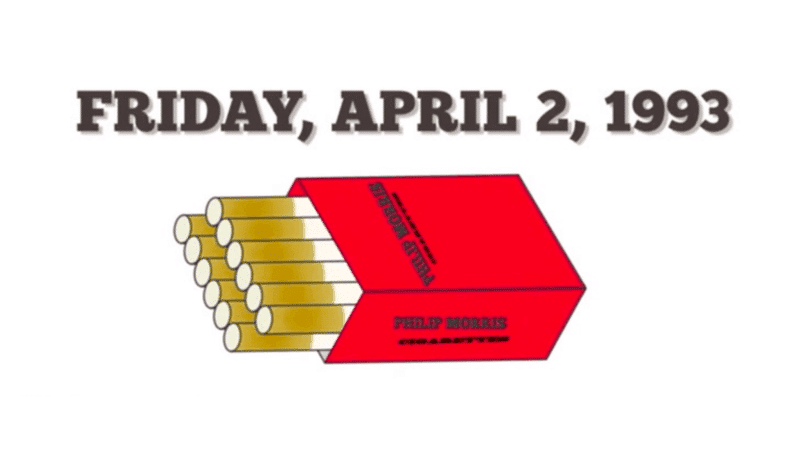People see building a brand as being fundamental to succeed in the crowded marketplace that exists today. Differentiation is one of the reasons why brands grow, and it is also one of the pillars of Marketing 101. But can someone succeed by being off-brand?
This is what we are essentially going to examine at length today. And we are all set to explore an unheralded aspect of marketing: Being off-brand.
The Meaning
The meaning of Off-Brand: The phrase “off-brand” can have several interpretations such as:
- A product selling inexpensively under a relatively unfamiliar brand name and often considered inferior to better-known brands.
- A brand with a product or service for which a famous brand already exists.
- Top-rated brands becoming generic terms for products
- An iconic brand deviating from its usual marketing tactics
- Being unmindful of their brand guidelines and going rogue every once in a while to shake things up.
Now that we have seen some of the connotations of going off-brand, let us take a cursory look at why customers would go off-brand. Here’s why:
- Lack of choice
- Other products being inexpensive
- The need to experiment (This one is rare but can be observed in low-ticket purchases)
- Inclination to support small businesses instead of mega-corporations
- The need to stand out
Popular Brand vs. Off-brand

A unique feature to both well-established brands and generic products is the fact that both require minimal marketing.
Although popular brands may spend a lot of time, effort, and money on marketing activities, they enjoy an enviable recall in the consumer’s mind. For diametrically opposite reasons, generic brands (private brands) don’t have to spend a lot on marketing.
Private labels have been considered a serious threat to established brands since the 1990s for a variety of reasons such as :
- The quality of private labels which was superior to that of established brands
- The development of premium private labels
- The emergence of new channels
- The creation of new categories
Brands that are not popular rely on the power of undifferentiated marketing. They do not need extensive market research, and they reach the majority of the target audience quite easily. This could be because of many reasons, one of which is the word of mouth publicity.
If you think about it, undifferentiated marketing may prove to be the game-changer here by the principle of less is more.
Suppose consumers will not feel bombarded by ads at every given opportunity and yet walk away with a good experience. In that case, they will have a greater tendency to talk about it, hence helping word-of-mouth publicity.
History
One of the most classic examples of going off-brand is when Philip Morris announced a drastic cut in the prices of Marlboro cigarettes. He did so to compete with the generic brands that were eating into its market share. It was pandemonium! The day it was announced is still known as Marlboro Friday.

This unprecedented move shocked investors, analysts, and other pundits alike. But, in the end, it turned to be an extremely tricky one as the stock recovered its losses in two years and priced out all its rivals from the market.
This proves that established brands can hold their own and stave off significant competition from generic brands.
There are also several instances of certain brands becoming so ubiquitous with the products they sell that their names have become the identity of their item. Some notable examples in this category are Xerox, Jetskis and, Bubblewrap.
Like many things in life, this is a double-edged sword as it means that many people are not aware of the company that makes this product or the fact that it has other offerings.
But on the brighter side, the firm has found the pot of gold at the end of the rainbow by manufacturing one spectacularly successful product.
The decision on whether a company should take the off-brand route or not depends on a multitude of variables:
- potential customers
- competitor analysis
- customer demographics
- economic data such as GDP growth, revenue, industry growth, and so on.
To get accurate information on all the parameters mentioned above, it becomes essential that organizations have a robust marketing information management practice.
If these terms intimidate you, keep it simple and go back to the 5Ps of marketing.
Key Players
As we said, private brands have been thriving since the 90s, but it’s essential to know some significant players contributed to their resurgence.
Pharmaceutical firms
The global generics pharmaceutical market has grown to become a significant chunk of the overall pharmaceutical drugs market. It continues to work on expanding its footprint while remaining accessible and economical.
The most well-known generic drug in the US is aspirin, as it is the name used for any acetylsalicylic acid product.
Food and Beverages industry:
Outside of the pharmaceuticals, another industry with many off-brand products is the food and beverages industry. It is common practice for supermarkets to have local potato chips, soaps, biscuits, etc.
Another version of the off-brand that is often seen in these stores is a private label which is a good that is manufactured for and sold under the name of a specific retailer, competing with brand-name products. A few well known private label brands are:
- Costco Kirkland Signature
- Target Up & Up
- Safeway Select
- Aldi Simply Nature
Apparel
An off-brand or a private label is not something that hasn’t been tried and tested by retailers.
There are also examples of private labels becoming huge successes. Take, for instance, the London-based retailer Joseph that launched as a private label venture in 1983. Joseph is positioned as a bridge-priced luxury brand that now boasts 20+ mono-branded stores worldwide, becoming a key driver of international expansion and financial success.
The evolution of private labels or off-brands highlights a strong trend in the fashion retail landscape. Retailers who have adopted this model are more likely to display the willingness and agility needed to keep up with the dynamic tastes of their customer base.
One of the biggest companies, the master at going off-brand, is Google, which enjoys a near-monopoly in the search engine market.
Under no circumstance would an enterprise tinker with its logo. But Google has repeatedly demonstrated that it is not afraid to wade into uncharted waters.
What started as a joke when the founders went to Burning Man became a full-blown tradition with everyone waiting with bated breath to find out the following Google Doodle.
Another instance when Google cleverly went off-brand was while designing the logo of Stadia, a digital gaming platform. The brightly colored aesthetic of Google is missing from it, thus keeping the casual viewer in the dark.
The store brands, sub-brands, or umbrella brands have a golden opportunity to examine their goals and refine their strategy on various levels as the key players set the tone for them to follow suit.
They can go back to the drawing board and take a hard look at their private labels’ operating model, sourcing, price, assortment, communication, and packaging. The private brands should also be ready to take advantage of the frequent economic uncertainties as they have the upper hand there as they can cater to the masses by being affordable.
Is Going off-Brand Likely to Take Off?

So, the biggest question on everyone’s mind is:
Is going off-brand become a trend? Or, will these brands continue to stay below the radar of the ever-evolving and aware consumer?
As mentioned earlier in this piece, it is crucial to know the customer demographic when launching a product. Millennials looking to live on a budget early on in their careers are the apt target audience for off-brand items.
Off-branded products will also appeal to those who are looking to adopt a minimalist lifestyle and retire early.
Customer inclinations and perception towards brands, their position on the never-ending price vs. quality debate, and the organization’s reasoning to start an off-brand are crucial.
Some reasons why manufacturers decide to start their off-brand include:
- covering the cost of selling designer brands at low margins
- utilizing excess production capacity
Starting an off-brand or private label must be well thought out, as poor execution leads to the cannibalization of branded products.
It may also lead to financial ruin as overhead costs, additional manufacturing, and distribution complexities, along with the cumbersome negotiations during contract renewals, are often not considered.
Some, however, argue that off-brands are a necessity to remain competitive and learn about their customers.
All in all,
“To be a Brand or Off-Brand”
is a compelling question, the answer to which is never a definite yes or no.

Ranu Kumari is a Professional Writer and a Marketing enthusiast who currently runs her own Marketing Consultancy, LatitudeBOX. She has written promotional articles for multiple brands and has published her work in Scopus indexed journals. She is passionate about expressing her thoughts and ideas to connect with her readers in a voice that they understand.
